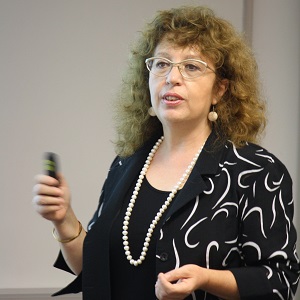Information
Venue
Start
End
25 September 2015 | Distinguished Speaker Lecture
Climate Change and Oceans: New Challenges for the Law of the Sea
Introduction

Both the 1982 United Nations Convention on the Law of the Sea (UNCLOS) and the 1992 United Nations Framework Convention on Climate Change (UNFCCC) were initiated by Malta. Arvid Pardo, in his historic speech before the General Assembly in 1967, brought attention to the common heritage of mankind in the resources of the seabed and sub-soil, now known as the “Area”, which led to the eventual adoption of UNCLOS. In 1988, at the initiative of David Attard, a Maltese national and a judge at the International Tribunal for the Law of the Sea (ITLOS), placed climate change on the UNGA agenda for the first time as part of the common heritage of mankind, which resulted in resolution 43/53 and the negotiations of the UNFCCC. Today, as the impacts of climate change are felt across the globe on both land and sea, and the relationship between law of the sea and climate change has surpassed their common thread of political origin and now raise significant legal questions and challenges.
Over 70% of the earth is covered by ocean. The oceans play a critical role in regulating climate, producing oxygen, as well as in absorbing carbon dioxide (CO2) from the atmosphere. The most well-known impacts of climate change are melting glaciers, rising ocean levels and the impact on coastal areas, in particular low-lying areas and small island states. In addition, up to 50% of the CO2 released by burning fossil fuels over the past 200 years has been absorbed by the world’s oceans, which has resulted in a high level of ocean acidification, negatively impacting marine living resources, such as coral reefs.
Climate change has raised a number of new challenges for the law of the sea that were not foreseen during the nine-year period (1973-1982) when UNCLOS was negotiated. These include issues such as regulating emissions from shipping, carbon sequestration, geo-engineering in the oceans, impact of ocean acidification on the conservation of marine living resources, climate change as pollution under UNCLOS, sea-level rise and its impact on maritime boundaries and the opening up of the Arctic to circumpolar navigation and offshore exploration activities.
This lecture examined the challenges and developments relating to the law of the sea and climate change.
Presentation
To download Dr Oral’s presentation in PDF format, click here.
About the Speaker
Dr Nilufer Oral is a member of the Law Faculty at Istanbul Bilgi University and Deputy Director of the Marine Research Center for the Law of the Sea. She is a Distinguished Fellow of the Law of the Sea Institute, University of California School of Law, Berkeley; a Scholar-In-Residence, University of Virginia Law School in 2005 and has lectured on several occasions at the Rhodes Academy for the Law of the Sea.
Dr. Oral was elected to the IUCN Council for Western Europe (2012-2016) and is the IUCN Oceans Focal Point. She serves as Chair of the IUCN Academy on Environmental Law and co-chair of the Specialist Group on Oceans, Coasts and Coral Reefs for the IUCN World Commission on Environmental Law.
Dr. Oral serves as legal advisor to the Turkish Foreign Ministry on law of the sea and climate change and has participated in the Turkish delegation at the International Maritime Organization and as a negotiator at the climate change negotiations. She has been nominated by the Ministry as a candidate to the United Nations International Law Commission (2017- 2022).
She has also been involved as a legal expert in a number of projects with the Turkish Science Council on marine environmental issues, EU and UNDP.
Dr. Oral is a member of the Board of Directors, Jon Van Dyke Institute, Richardson School of Law, University of Hawai’i, American Society of International Law, and the European Society of International Law.
She is co-editor with Professor Charles Norchi of the International Straits of the World Series (Brill Publishers) with numerous other international publications.


